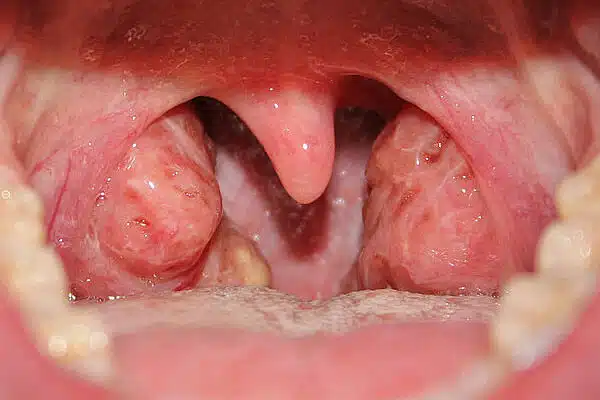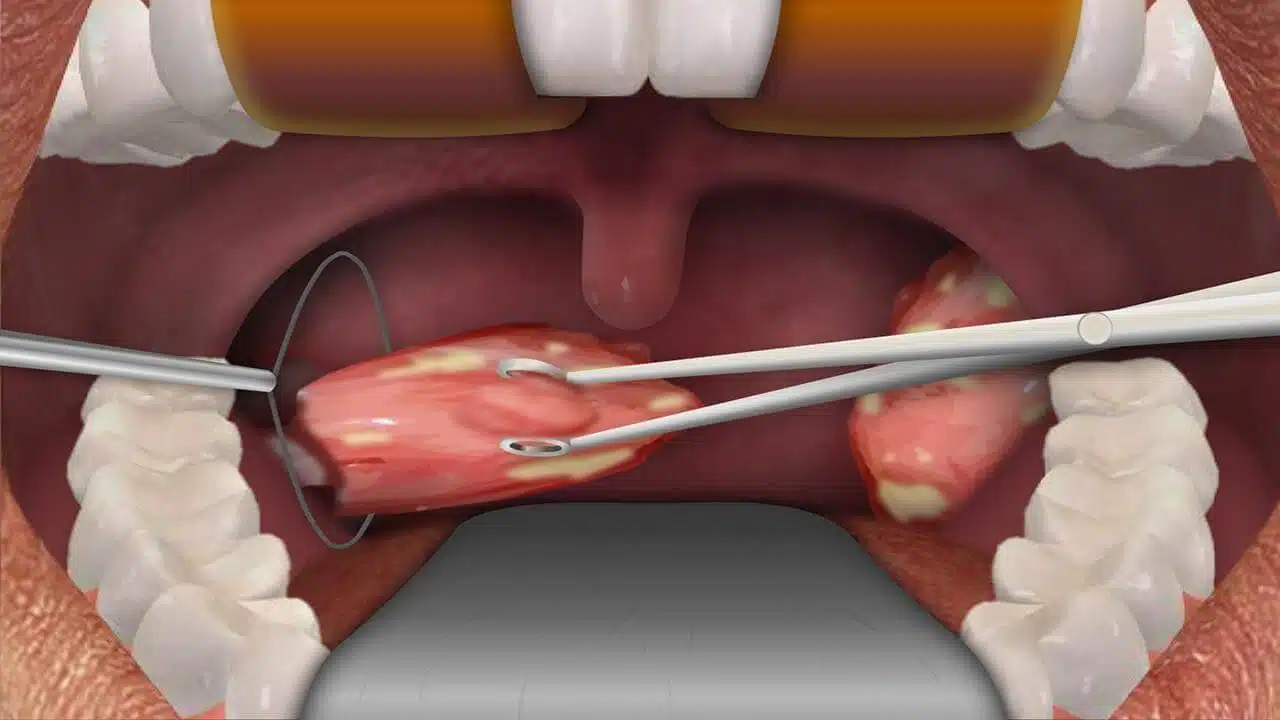The tonsils and adenoid
Tonsils are two clusters of tissues that are located on both sides of the throat. They are embedded at the palate (the mouth roof) side. When you eat or drink, the throat muscles push the tonsils together, therefore small particles of food may lodge in the crypts of the tonsils. These particles may lead to infection of tonsils. Adenoid is a single cluster of tissue in the nasopharynx (back of the nose) located at the pharynx.
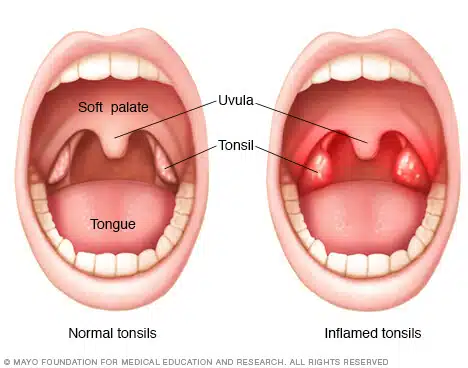
Tonsils and adenoid Function
The tonsils and adenoid are equipped with lymphoid tissue. This tissue is found on the base of the tongue and through the respiratory tract. Lymphoid tissue is made of lymphocytes which produce antibodies.
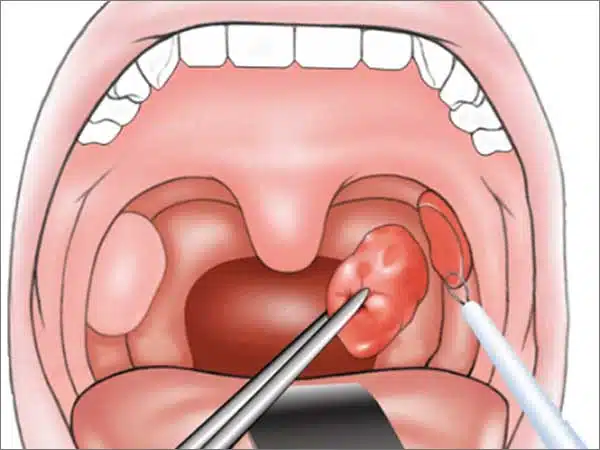
When tonsillectomy is necessary?
Tonsils and adenoid problems affect the children’s sleep
These tissues are sometimes larger than usual and interfere with breathing. It can cause a serious health condition called sleep apnea. One of the symptoms of sleep apnea is snoring at least four nights a week.
Tonsils and adenoid problems cause recurring throat infections
Though tonsils keep bacteria and viruses out they can get infected themselves, as they are sometimes overwhelmed. Tonsils removal may be necessary if the child has frequent throat infections (six to seven episodes per year) that include a fever and swollen lymph nodes. Other reasons include:
- Blockage of the nose and throat
- White debris in tonsils
- Unusual enlargement or appearance
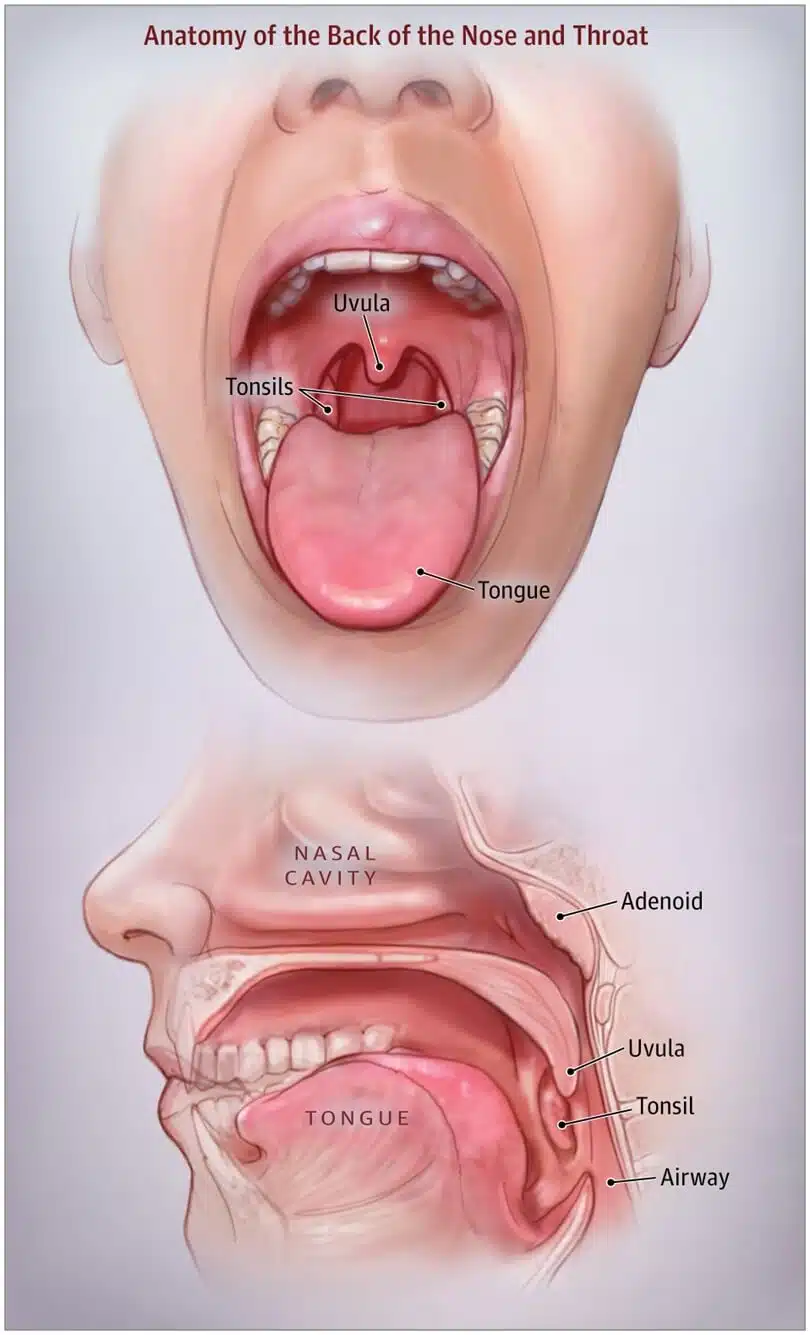
Tonsillectomy Procedure
The procedure is done under general anesthesia, so the child is given a mixture of gas and an intravenous medication. He/she will be continuously monitored by a pulse oximeter and heart rate monitor. There will be no external incisions. When the anesthetic takes effect the doctor cuts the tonsils with a surgical blade and removes them through the mouth. Then she/he burns (cauterize) the base with an electrical cauterizing unit. This procedure takes less than 60 minutes.
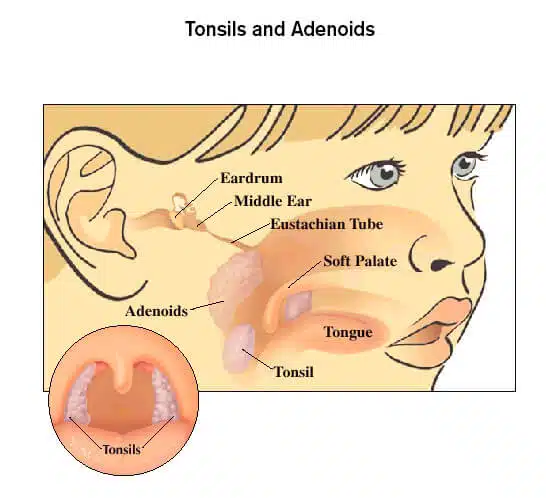
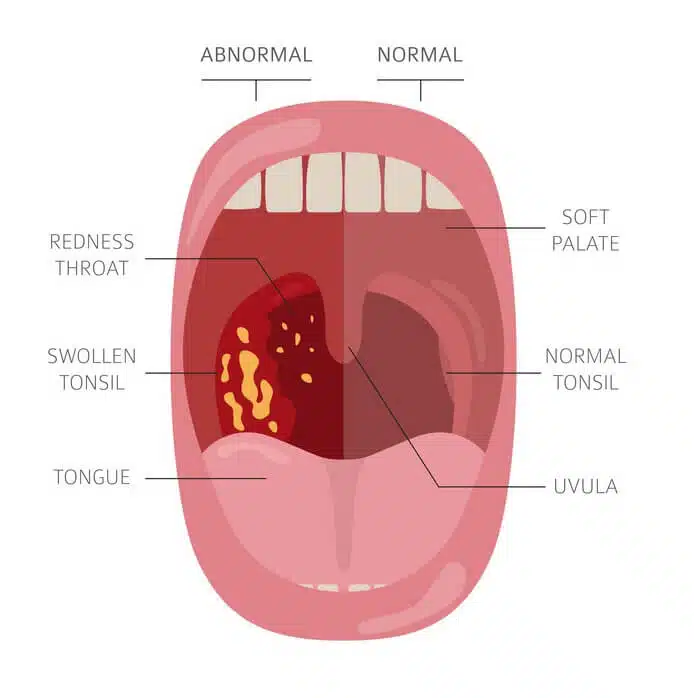
Risks
Like any other surgery, this operation may have some risks, such as: Reaction to anesthesia Medications used for anesthesia may lead to some short term minor problems such as vomiting, headache or muscle soreness. Though it barely happens general anesthesia has a risk of death.
